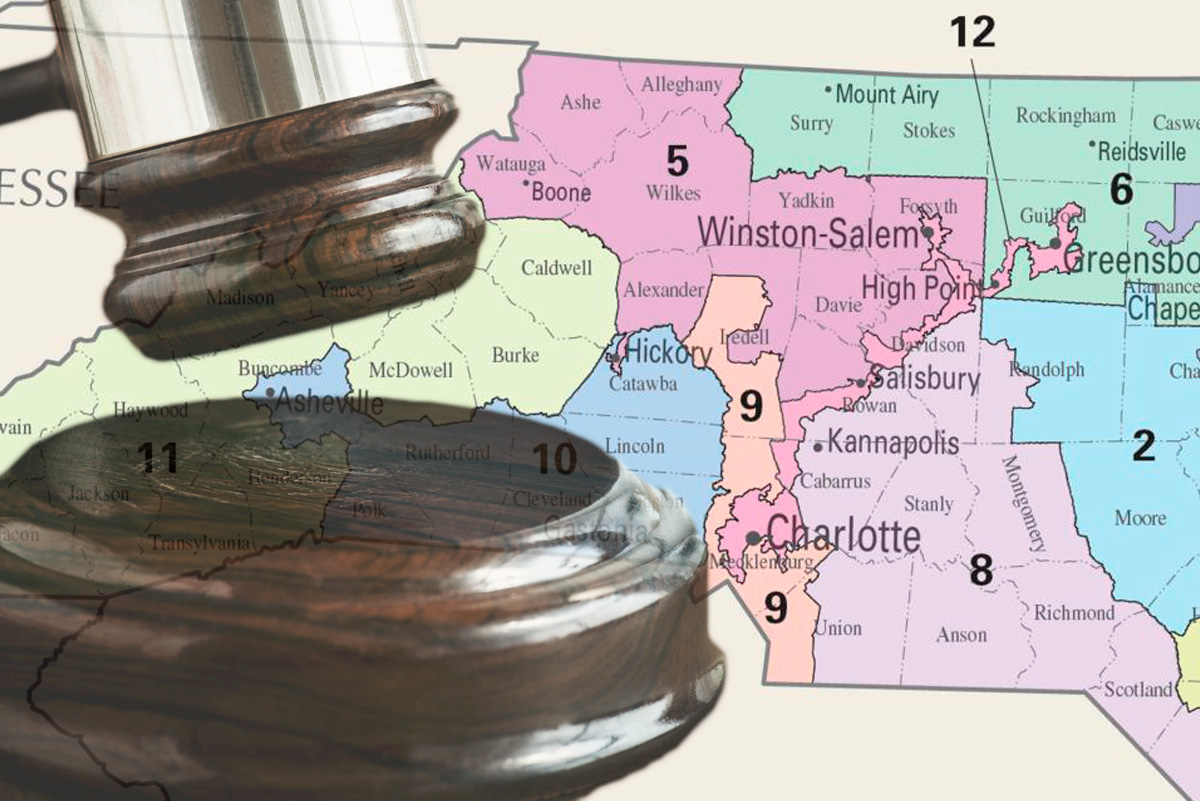What does a Republican-led state legislature in a purple state with a license to run roughshod over voters do? According to voting rights advocates in North Carolina, it meets in the middle of the night to pass abortion bans and go after the trans community.
That’s what happened this week after the state’s Supreme Court recently green-lighted a return to hyper partisan gerrymandering.
“Late Wednesday night, the General Assembly fast tracked the first of two bills that show the impact of the North Carolina Supreme Court ruling,” said Gino Nuzolillo, campaigns manager with the advocacy group, Common Cause. “Now it’s up for a vote on the floor and there has been and will be no time for public input.”
Nuzolillo adds, “We call it the monster abortion law.”
The House bill, which shortens the time for an abortion from 20 to 12 weeks, passed the Republican-controlled senate Thursday and now heads to Governor Roy Cooper (D), who has vowed to veto new abortion restrictions. GOP lawmakers hold a veto-proof supermajority in both chambers and have said they will seek to override the governor’s veto.
An overwhelming majority of abortions in the US happen after 12 weeks. After the US Supreme Court struck down Roe v Wade last year, a slew of Republican-led states passed sweeping anti-abortion laws, making North Carolina a destination for women across the South seeking abortions. This ruling would effectively close off that option.
“For people in neighboring states and across the South that have been able to get reproductive health care in North Carolina – and of course for people in North Carolina itself – this bill cuts them off,” said Nuzolillo.
The second bill now being fast tracked through the state legislature would eliminate gender affirming health care for trans youth, part of a broader GOP-led attack on the transgender community nationwide, with more than 500 anti-trans bills having been introduced in 49 states since January.
All of this comes on the heels of a decision by North Carolina’s Republican-led Supreme Court in late April overturning an earlier ruling that made extreme partisan gerrymandering illegal. The court’s latest 5-2 ruling means Republican lawmakers now have a free hand in redrawing congressional maps as early as next summer in ways that could lock in GOP control for the foreseeable future.
In a blog post, Michael Li of the Brennan Center for Justice called the outcome of April’s ruling “breathtaking in its brazenness,” noting the current map – which during the 2022 midterms led to an equal number of Democrats and Republicans being elected – could be “transformed into one that reliably elects 11 Republicans and just 3 Democrats in every election for the rest of the decade” no matter how Democrats perform.
That, he says, could shape control of a what is now a very narrowly divided US House of Representatives.
“They know they can’t win in a fair fight,” says Jackson Sailor Jones, associate director of Common Cause North Carolina, referring to Republican efforts to leverage their legislative power at the expense of millions of voters in the state, many of them voters of color.
“North Carolinians are no strangers to state lawmakers trying to distort their voting districts and create barriers to ballot access ahead of high-profile presidential elections,” Jones noted. “What they’re not used to is a North Carolina Supreme Court willing to overturn recent precedent in support of an extreme anti-voter legislative agenda that packs a decade’s worth of attacks on democracy into one legislative session.”
Recent polling shows an overwhelming majority in North Carolina – 9 out of 10 people surveyed – oppose gerrymandering.
Still, says Jones, the ruling leaves voters with few legal paths to challenge gerrymandering at the state level barring any moves by Congress, which tried and failed to pass legislation restricting gerrymandering in 2021. The Supreme Court in 2019 essentially washed its hands of the issue, declaring that redistricting lawsuits could not be brought to federal courts.
And unlike other states – including Alaska and California, where an independent and non-partisan redistricting commission is in charge of drawing congressional maps – in North Carolina that authority is wholly vested in the legislature, with the governor holding no veto power.
Last year, voting rights groups in the state successfully sued to overturn unfair election maps they argued disproportionately disenfranchised Blacks and other minorities who make up 39% of the population. Indeed, the latest census numbers show North Carolina’s recent population increase was largely driven by communities of color who have historically been the target of partisan gerrymandering.
April’s Supreme Court ruling effectively nullified that decision.
“What are we going to do,” says Nuzolillo. “Mobilize and organize like we never have before. We’ll mount the most aggressive and meanest GOTV machine focused not just on cities and suburbs but on rural areas that get left out, on HBCs, on young people in or out of school to elect prodemocracy candidates.”
Next year’s elections will see every seat in the legislature up for grabs, along with the governor’s office and one seat on the State Supreme Court now held by a Democrat.
“Our advocacy continues for voters’ in the form of demanding responsive maps during the redistricting ahead, including the work to protect Black and brown voters,” says Jones, adding that with these latest moves North Carolina will “once again be the nation’s epicenter in the fight for a just democracy.”





